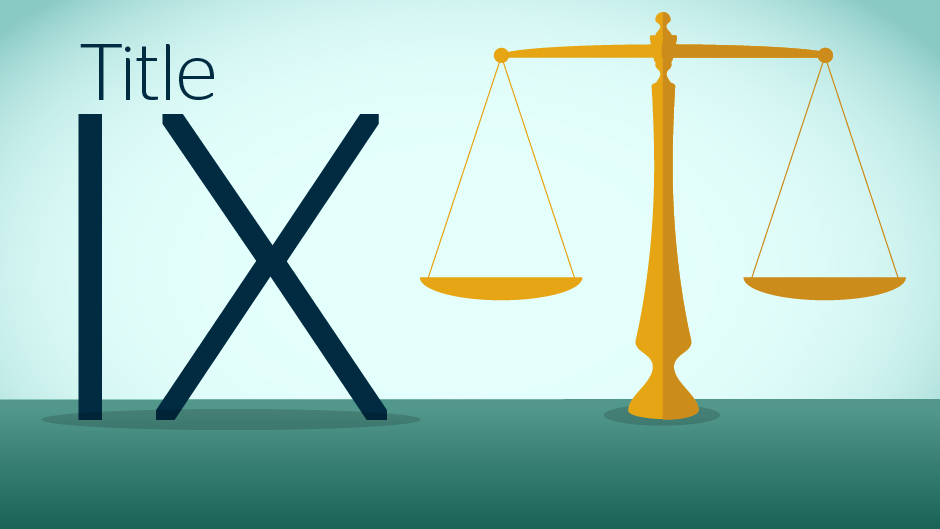Title IX is a federal civil rights law passed as part of the Education Amendments Act of 1972. This law protects individuals—students, employees, and others—from discrimination based on sex in educational programs or activities that receive Federal financial assistance. The University’s Title IX Office—under Human Resources—manages the implementation of this law as well as policies regarding sexual harassment and sexual assault.
Under Title IX, all people—regardless of gender—are expected to receive fair and equal treatment in all arenas, including, but not limited to, recruitment, admissions, educational programs and activities, course offerings and access, counseling, financial aid, employment assistance, facilities and housing, health and insurance benefits, and scholarships.
In an effort to provide equal educational opportunities for all, University students and faculty and staff members are subject to a Title IX investigation if a complaint is made.
Impact of Title IX
Since Title IX protects students, faculty, and staff, it is important for everyone to understand their role in ensuring a Title IX-compliant campus. For students, this means attending training to learn about their rights as members of the University community. Additionally, faculty and staff members are required to attend sexual misconduct education, which is overseen by the Title IX Office.
“I think the word ‘investigate’ causes most people to assume that reporting an issue will automatically get the offending person in trouble. That is not the case,” noted Raquel McDowell, assistant dean of students and Title IX investigator in the University’s Dean of Students Office. “Our role as Title IX officers is to provide individuals with all the options available and take whatever action the complainant (or plaintiff) requests.”
There is no one-size-fits-all approach when it comes to offering help or support for an individual who has experienced sexual misconduct or discrimination. The Title IX team at the University works to address these highly personal experiences in a manner that is consistent with each individual’s goals. “If there is something that is interfering with someone's ability to engage with the university experience, we are here to help,” explained Maria Sevilla, deputy Title IX coordinator in the Title IX Office. “Even if it happened off campus, if it is affecting their university experience, we can help.”
Title IX benefits both males and females
Because Title IX was initially enacted to correct imbalances and enforce equal access to female athletes seeking scholarships and opportunities, discrimination against women and girls has received more attention because females historically have faced greater gender restrictions and barriers in education. But Title IX has always required educational institutions to maintain policies, practices, and programs that do not discriminate against anyone on the basis of gender. The Title IX investigation process is no different for female students than male students. It aims to maintain a safe and secure environment, free from any form of sexual misconduct—including sex- or gender-based discrimination, dating violence, domestic violence, sexual assault, or stalking.
“Look at how far we’ve come. Thirty years ago, sexual harassment wasn’t even a term and now we have laws protecting students and employees. And, we’re making improvement,” notes McDowell, who advises the University’s It’s On Us student ambassador program. “It’s good that we have people in my type of role where this is our sole responsibility. Universities recognize that this role is important. It all takes time, and I believe with time things will continue to improve.”
Support at the University
There are several ways for students to get help, including sending an email to McDowell at rxm1408@miami.edu or contacting the Dean of Students Office at doso@miami.edu. Students may visit suite 2250 in the Whitten University Center at the Coral Gables campus for in-person help. Or, they can speak to a mental health professional at the Counseling Center by calling 305-284-5511 or visiting miami.edu/counseling. All interactions are confidential.
University faculty and staff members can file an online report or obtain information about available resources by visiting miami.edu/titleix. In addition, individuals can contact the University’s Title IX Office by email at titleixcoordinator@miami.edu or call 305-284-8624. Counseling services also are available through the Faculty and Staff Assistance Program or find behavioral health services available through employee benefits. Learn more about mental health resources available to University of Miami Aetna Plan members.

